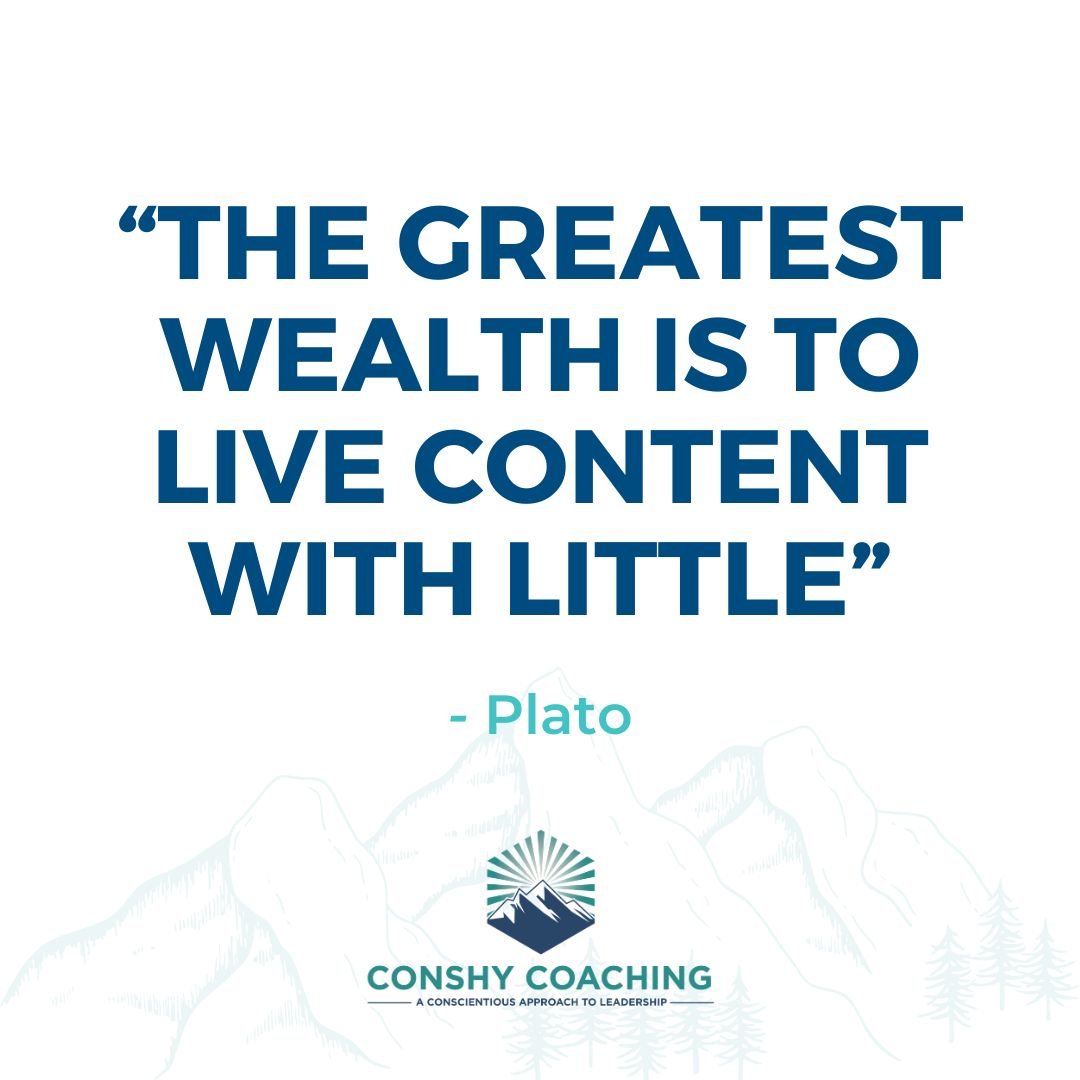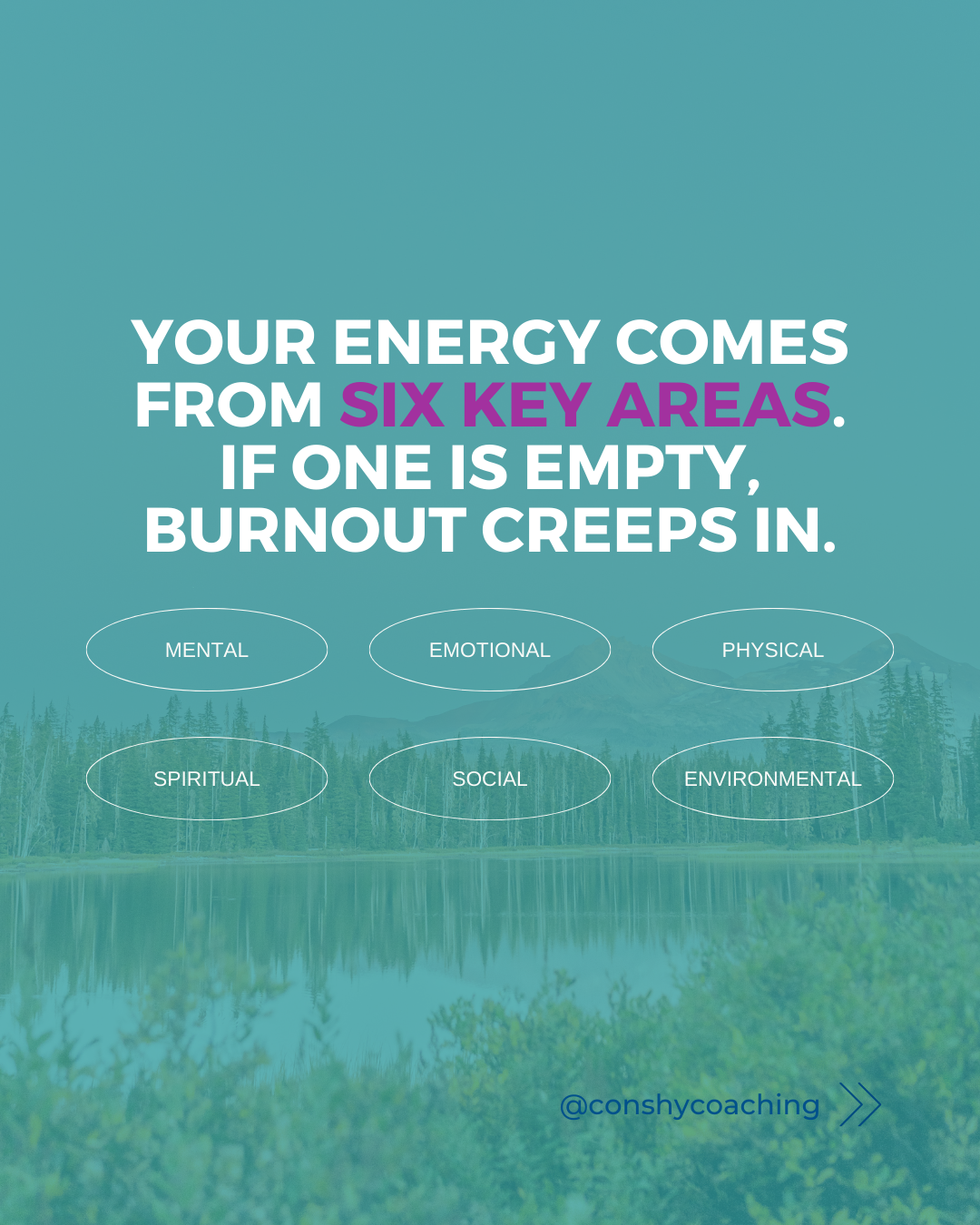Rethinking Wealth: More Than Just Money in Mindful Leadership
We often measure success by numbers – profits, salaries, and growth. It's easy to think that money is the only real measure of wealth. But with costs rising and wages staying the same, many of us are realizing that the old ways of looking at success aren't working anymore. Studies show that millennials are the first generation to earn less than their parents, even though things cost a lot more (Barton, 2016).
So, where does that leave us?
Mindful leadership encourages us to think differently about wealth. It's about balancing financial security with a bigger, more complete picture – one that understands the challenges of our economy and the deeper satisfaction we can find through leading. It's about realizing that money is just one part of wealth. As Plato said, 'The greatest wealth is to live content with little,' meaning true wealth comes from inner peace, not just what we own.
In leadership, wealth isn’t just about how much money or power you have. It’s about how much you enrich your own life and the lives of those around you. By seeing wealth in a broader way, we can appreciate what we already have and use it to create more fulfilling leadership experiences.
In today's stressful world, focusing on our time, energy, health, and connections is key to finding that inner satisfaction Plato talked about.
Using Your Time and Energy Wisely:
Time is something we can’t get back, and we often spend too much of it stressed about work. Good leaders know that how they use their time affects their success and happiness. True wealth in leadership means using time to live by your values, recharge your energy, grow personally, build relationships, and make smart decisions that matter in the long run.
Think about the six areas of energy: physical, emotional, mental, spiritual, social, and environmental. None of these are about money.
In a time when burnout is common, leaders should ask themselves:
Am I using my time and energy in ways that help me and my team?
Am I making time to rest and recharge or just pushing myself too hard?
Am I focusing on what really matters, not just money?
Growing Your Wisdom, Strengths, and Talents:
While money is important, it’s not the only thing that shows your worth. True leadership wealth comes from using your strengths, learning new things, and growing in meaningful ways.
Wisdom comes from knowledge and experience but also from learning and growing from past experiences. This wisdom isn't just for your success; it's about sharing it with your team, making everyone stronger.
With pay raises not keeping up with costs, many people are looking for other ways to grow and feel fulfilled. If money isn’t the only way to measure success, consider:
Am I using my strengths in a way that makes me happy?
Am I learning new skills that open up more opportunities?
Am I creating a workplace where everyone’s talents are valued?
Building Strong Connections and Networks:
The 2020 World Happiness Report showed that social connection is the most important thing for happiness. In tough times, our relationships matter even more. In leadership, it’s true that you’re only as good as your team. Your network – your relationships with colleagues, employees, friends, and mentors – is important for your success. Having a strong support system that gives you different views, helps you grow, and supports you through challenges is really valuable. As a leader, investing in your network is investing in your wealth.
To build a strong network, think about these three types of relationships:
Strategic: People who help you see the big picture and plan for the future.
Tactical: Experts who help you solve everyday problems.
Personal: Supportive relationships that keep you grounded and motivated.
Prioritizing Your Well-Being:
One of the most overlooked parts of leadership wealth is well-being. In a world that always wants more, success is about how you feel while you’re achieving it.
A leader’s ability to be present, make good decisions, and inspire others is tied to their mental, emotional, and physical health. But we often burn ourselves out trying to control everything. True leadership wealth is about accepting what you can’t control and focusing on what you can.
Accepting things isn’t giving up. It’s knowing what you can’t change so you can focus on what matters. It’s making peace with uncertainty and taking actions that move you, your team, and your organization forward.
Consider:
Am I setting boundaries to protect my energy?
Am I doing things that support my mental and physical health?
Am I creating a workplace that values well-being?
Final Thoughts
Money is important, but wealth is more than that. By accepting what you can’t control and focusing on what you can, you find true freedom.
Remember, your wealth as a leader is a mix of your experiences, relationships, wisdom, time, talents, and well-being. As you lead, make sure you’re not giving up these things for money. A truly wealthy leader lives a fulfilling and balanced life, inspiring others to do the same.
If you’re ready to explore how mindful leadership can help you rethink wealth, consider a coaching conversation. With personalized guidance and tools, we can help you align your leadership goals with a more sustainable and meaningful sense of wealth. Whether you want to focus on time, talents, relationships, or well-being, we can find the right path for you and your team. Get started today by scheduling a free, no pressure, coaching exploration call, or visiting conshycoaching.com to learn more about coaching.
Read more articles like this one on my blog, check out my free downloadable resources, or consider purchasing my burnout bundle.
And, for more frequent tips and tricks, be sure to connect with me on Instagram & Linkedin.
References
Barton, D. (2016, July 7). Millennials will be the first generation to earn less than their parents. World Economic Forum. https://www.weforum.org/stories/2016/07/millennials-will-be-the-first-generation-to-earn-less-than-their-parents
Add world happiness report (2020): https://worldhappiness.report/ed/2020/#:~:text=The%20World%20Happiness%20Report%20is,of%20Urbanisation%2C%20to%20Assess%20Happiness



